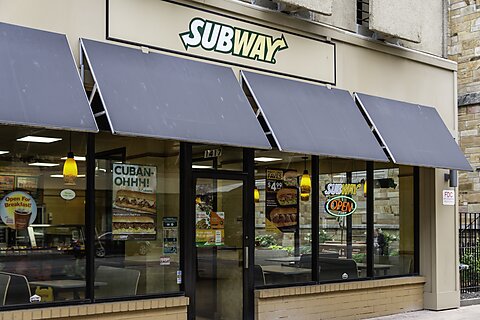Thomas A. Firey
US antitrust officials have been busy of late. They’re awaiting a ruling in a major case against Google, in the midst of a suit against Amazon, looking to circumvent a court ruling allowing Microsoft’s acquisition of game maker Activision Blizzard, and probing Adobe’s acquisition of cloud‐based designer Figma and the merger of grocers Kroger and Albertsons. They’re also side‐eyeing ExxonMobil’s deal for Pioneer Natural Resources and Cisco’s bid for cybersecurity firm Splunk.
Yet, despite this full plate, these officials are launching another probe into a serious threat to the US economy: Big Sandwich.
Last week, The Hill reported that the Federal Trade Commission is examining the Subway sandwich chain’s acquisition by private equity firm Roark Capital. Roark already holds sandwich makers Jimmy John’s, McAlister’s Deli, and Schlotzky’s, as well as Arby’s.
Consumers may think the deal could allow Roark to bring the latter chains’ quality to Subway, which has had its problems. But the FTC apparently fears Roark would gain market power over hoagies, grinders, and subs.
(At this point, I want to note this is not The Onion.)
The Subway investigation is just the latest step in a dramatic recent shift in US antitrust policy. For decades, regulators eyed such dealings with one over‐arching question in mind: Will it benefit or harm consumers? Historical evidence shows this “consumer welfare standard” has delivered considerable benefits to Americans.
But in the last few years, there has been a push for antitrust to broaden its scope and consider “bigness,” in and of itself, economically dangerous regardless of its effect on consumers—a viewpoint termed “Neo‐Brandeisianism.” Prominent politicians of both major political parties have embraced this view, and it has been operationalized by Biden administration appointees Lina Kahn at the FTC and Jonathan Kanter at the Department of Justice’s Antitrust Division.
Problem is, when neo‐Brandeisians try to explain what those dangers are, their predictions don’t jibe with reality. My colleague Peter Van Doren describes some of the academic research on Neo‐Brandeisians’ bad predictions here.
In the next issue of Regulation, University of Missouri law professor Thom Lambert and law clerk Tate Cooper look at some of the dangers of Neo‐Brandeisianism; I’ll post a link to it here as soon as it’s available. Until then, enjoy this backpage essay by Regulation contributing editor Ike Brannon, who tongue‐in‐cheek predicted 18 months ago that neo‐Brandeisians would attack a (hypothetical) merger of Ponderosa and Bonanza restaurants for creating a dangerous Big TV‐Themed‐Steak monopoly. Ike got the specific restaurant sector wrong, but his hyperbolic humor has proven to be prescient.
























